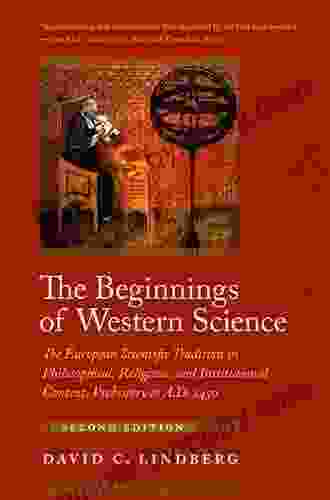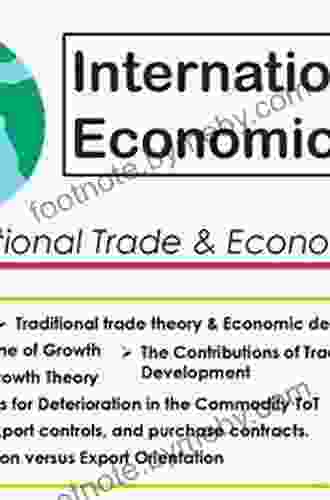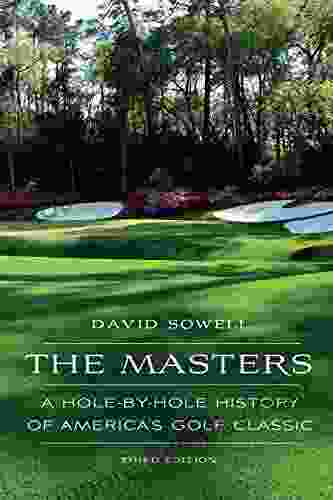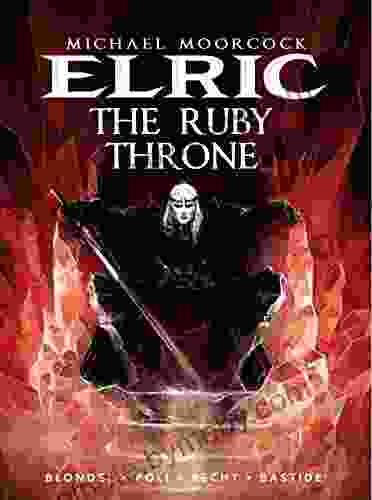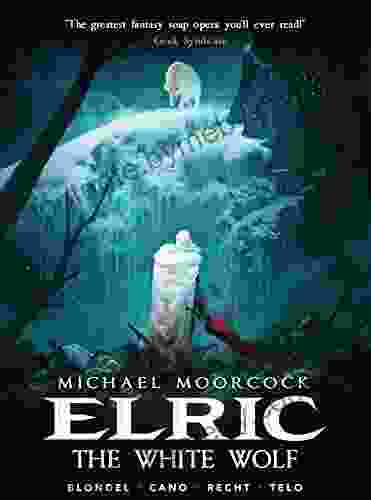The European Scientific Tradition: A Philosophical, Religious, and Institutional History

Science is often seen as a purely objective and rational enterprise, but the history of science in Europe shows that it has always been deeply intertwined with philosophy, religion, and institutions. This book explores the complex interplay between these forces and how they have shaped the development of science over the centuries.
4.6 out of 5
| Language | : | English |
| File size | : | 9590 KB |
| Text-to-Speech | : | Enabled |
| Screen Reader | : | Supported |
| Enhanced typesetting | : | Enabled |
| Word Wise | : | Enabled |
| Print length | : | 506 pages |
| Lending | : | Enabled |
The Ancient Greeks
The ancient Greeks were the first to develop a systematic approach to science. They believed that the universe was governed by natural laws and that these laws could be discovered through observation and reason. This approach laid the foundation for the scientific tradition that would later flourish in Europe.
One of the most important contributions of the ancient Greeks to science was their development of mathematics. The Greeks developed a sophisticated system of mathematics that allowed them to make precise measurements and calculations. This system of mathematics was essential for the development of physics, astronomy, and other scientific disciplines.
The ancient Greeks also made significant contributions to the field of medicine. They developed a system of medicine that was based on the observation of the human body and the use of natural remedies. This system of medicine was later adopted by the Romans and other European cultures.
The Middle Ages
The Middle Ages was a time of great intellectual ferment in Europe. Scholars began to rediscover the works of the ancient Greeks and to apply their methods to the study of nature. This led to a renewed interest in science and the development of new scientific theories.
One of the most important scientific advances of the Middle Ages was the development of the scientific method. The scientific method is a systematic approach to the study of nature that involves observation, hypothesis testing, and experimentation. This method allowed scientists to make more accurate and reliable observations of the world around them.
The Middle Ages also saw the rise of the universities. The universities were centers of learning and research where scholars could share their ideas and collaborate on scientific projects. The universities played a major role in the development of the scientific tradition in Europe.
The Renaissance
The Renaissance was a period of renewed interest in classical learning and culture. This led to a renewed interest in science and the development of new scientific theories.
One of the most important scientific advances of the Renaissance was the development of the heliocentric model of the solar system. The heliocentric model proposed that the Earth and other planets revolve around the sun. This model was a major departure from the geocentric model that had been accepted since the time of the ancient Greeks.
The Renaissance also saw the development of new technologies, such as the printing press and the telescope. These technologies made it possible to disseminate scientific knowledge more widely and to make more accurate observations of the world around us.
The Scientific Revolution
The Scientific Revolution was a period of rapid scientific progress that began in the 16th century. This period saw the development of new scientific instruments and methods, as well as the formulation of new scientific theories.
One of the most important scientific instruments developed during the Scientific Revolution was the telescope. The telescope allowed scientists to make more detailed observations of the heavens and to discover new celestial objects.
Another important scientific instrument developed during the Scientific Revolution was the microscope. The microscope allowed scientists to make more detailed observations of the microscopic world and to discover new organisms.
The Scientific Revolution also saw the development of new scientific methods, such as the experimental method. The experimental method is a systematic approach to the study of nature that involves controlled experiments.
The Scientific Revolution led to a number of important scientific discoveries, such as the laws of motion, the laws of thermodynamics, and the theory of evolution. These discoveries laid the foundation for the modern scientific tradition.
The Enlightenment
The Enlightenment was a period of philosophical and intellectual ferment that began in the 18th century. This period saw the development of new ideas about science, religion, and society.
One of the most important ideas to emerge during the Enlightenment was the idea of the scientific method. The scientific method is a systematic approach to the study of nature that involves observation, hypothesis testing, and experimentation.
The Enlightenment also saw the development of new ideas about the relationship between science and religion. The Enlightenment philosophers believed that science and reason could be used to understand the world and that religion should be based on rational principles.
The Enlightenment had a profound impact on the development of the scientific tradition in Europe. The Enlightenment philosophers helped to create a climate of intellectual freedom and inquiry that was conducive to scientific progress.
The 19th Century
The 19th century was a period of rapid scientific progress. This period saw the development of new scientific disciplines, such as chemistry and biology, as well as the formulation of new scientific theories.
One of the most important scientific discoveries of the 19th century was the cell theory. The cell theory states that all living things are composed of cells.
Another important scientific discovery of the 19th century was the theory of evolution. The theory of evolution states that all species have evolved from common ancestors.
The 19th century also saw the development of new technologies, such as the steam engine and the telegraph. These technologies had a profound impact on society and helped to fuel the Industrial Revolution.
The 20th Century
The 20th century was a period of unprecedented scientific progress. This period saw the development of new scientific disciplines, such as nuclear physics and computer science, as well as the formulation of new scientific theories.
One of the most important scientific discoveries of the 20th century was the theory of relativity. The theory of relativity states that space and time are not absolute but are relative to the observer.
Another important scientific discovery of the 20th century was the theory of quantum mechanics. The theory of quantum mechanics states that energy and matter can behave in a wave-like or particle-like manner.
The 20th century also saw the development of new technologies, such as the computer and the internet. These technologies have had a profound impact on society and have helped to usher in the Information Age.
The European scientific tradition is a long and rich one. It has been shaped by a complex interplay of philosophy, religion, and institutions. This tradition has led to a number of important scientific discoveries that have had a profound impact on our understanding of the world around us.
The European scientific tradition is still alive and well today. Scientists continue to make new discoveries and develop new technologies that are changing the world in which we live.
4.6 out of 5
| Language | : | English |
| File size | : | 9590 KB |
| Text-to-Speech | : | Enabled |
| Screen Reader | : | Supported |
| Enhanced typesetting | : | Enabled |
| Word Wise | : | Enabled |
| Print length | : | 506 pages |
| Lending | : | Enabled |
Do you want to contribute by writing guest posts on this blog?
Please contact us and send us a resume of previous articles that you have written.
 Book
Book Novel
Novel Page
Page Chapter
Chapter Text
Text Story
Story Genre
Genre Reader
Reader Library
Library Paperback
Paperback E-book
E-book Magazine
Magazine Newspaper
Newspaper Paragraph
Paragraph Sentence
Sentence Bookmark
Bookmark Shelf
Shelf Glossary
Glossary Bibliography
Bibliography Foreword
Foreword Preface
Preface Synopsis
Synopsis Annotation
Annotation Footnote
Footnote Manuscript
Manuscript Scroll
Scroll Codex
Codex Tome
Tome Bestseller
Bestseller Classics
Classics Library card
Library card Narrative
Narrative Biography
Biography Autobiography
Autobiography Memoir
Memoir Reference
Reference Encyclopedia
Encyclopedia David Blaine
David Blaine Dawn Hadley
Dawn Hadley Dashka Slater
Dashka Slater David Hernandez
David Hernandez David Archer
David Archer David Hulett
David Hulett David Gonzalez
David Gonzalez David Michael Slater
David Michael Slater Dave Chambers
Dave Chambers David R Williams
David R Williams Debbie Tung
Debbie Tung David Booth
David Booth Kevin J Davey
Kevin J Davey David Hoffer
David Hoffer David Chandler
David Chandler David N Myers
David N Myers David Spiegelhalter
David Spiegelhalter David Hancock
David Hancock David Marusek
David Marusek David F Walker
David F Walker
Light bulbAdvertise smarter! Our strategic ad space ensures maximum exposure. Reserve your spot today!

 Emmett MitchellUnlock the Secrets of Yorkshire's Trout Streams with "Yorkshire Trout Flies"...
Emmett MitchellUnlock the Secrets of Yorkshire's Trout Streams with "Yorkshire Trout Flies"... Lawrence BellFollow ·16.7k
Lawrence BellFollow ·16.7k David BaldacciFollow ·11.6k
David BaldacciFollow ·11.6k Alfred RossFollow ·7.3k
Alfred RossFollow ·7.3k Dwayne MitchellFollow ·8.5k
Dwayne MitchellFollow ·8.5k Victor TurnerFollow ·15.5k
Victor TurnerFollow ·15.5k Norman ButlerFollow ·9.8k
Norman ButlerFollow ·9.8k José SaramagoFollow ·18.4k
José SaramagoFollow ·18.4k Bret MitchellFollow ·19.4k
Bret MitchellFollow ·19.4k

 Jayden Cox
Jayden CoxFaith Lies and the War on Terror: Exposing the Truth...
In the aftermath of the 9/11...

 Jack Powell
Jack PowellMad About the Trump Era: Mad Magazine 2024
The Trump...

 Warren Bell
Warren BellYou Got This: Tips for Women Who Want to Rock at Real...
Real estate...

 Ernest Cline
Ernest ClineThe Daring Life and Turbulent Times of the Original Girl...
: Embracing the Spirit of Adventure In...
4.6 out of 5
| Language | : | English |
| File size | : | 9590 KB |
| Text-to-Speech | : | Enabled |
| Screen Reader | : | Supported |
| Enhanced typesetting | : | Enabled |
| Word Wise | : | Enabled |
| Print length | : | 506 pages |
| Lending | : | Enabled |


